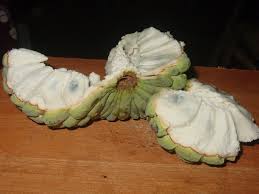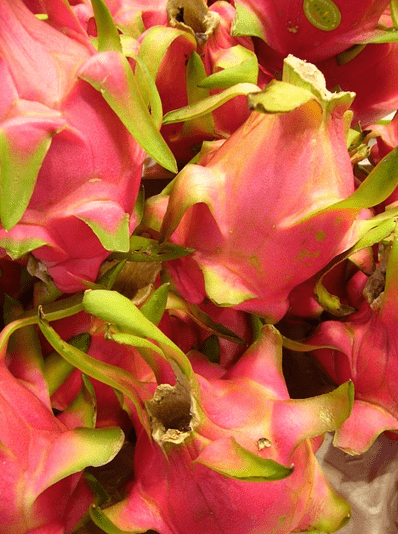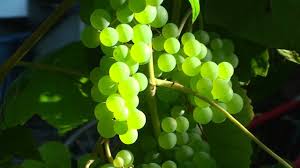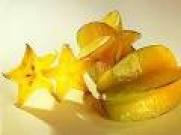Watermelon , a refreshing organic fruit … for thousands of years
Watermelon is absolutely a seasonal fruit and worthy and appropriate for summer. It is so full of succulent and sweet juice, and so delicious and suitable for eating on hot summer days, that if it did not exist in the summer, it would have been invented.
Sometimes a watermelon brings up nostalgic feelings, and not necessarily of warm happy summer days, as happened to the Israelites when they began their long journey in the desert and longed for the watermelons of Egypt. "We remembered the free fish that was eaten in Egypt, the gourds and the watermelons and the hay and the onions and the garlic." (Numbers 11:5). The Egyptians were indeed very experienced in growing watermelons, since archeological evidence indicates that it existed there from the second millennium BC, which confirms that the watermelon originated in Africa.
One aspect of watermelon about which there is less agreement is how to choose a good one: The common practice is to lightly thump the watermelon with the palm of an open hand, to assume a thoughtful expression and to listen carefully to the sound that is produced. The problem is that each person appreciates the sound differently. Our recommendation? Select one whose stem is dried out and that has a yellowish area on its skin. Then listen for a hollow sound when thumped.

The organic watermelon, apart from quenching and cooling the body and soul, is also full of good nutrition. It is a great source of lycopene (which causes its wonderful red color, like the tomato, red guava, grapefruit and papaya.) Lycopene has been widely praised for reducing cardiovascular disease, prostate cancer and is anti-aging. It also contains plenty of vitamin A and vitamin C (250 g of watermelon contains the entire recommended daily amount of vitamin C for adults!) which should be consumed in the summer as well as in the winter because the body's immune systems need a loving diet and regular maintenance all the time. It also has plenty of vitamin B and very few calories. Because it contains a lot of liquid (about 90%, the same as a jellyfish), it is a wonderful and delicious way to flush the inner tubes of the kidneys and bladder. Constant consumption of watermelons could be viewed as a type of insurance policy against kidney stones. However, for this same reason it is not recommended to eat watermelon before going to bed. Interestingly, although watermelon stores a considerable amount of water in it, it can also grow with natural irrigation from rainfall and natural precipitation only.
The Rambam saw watermelon as a means to improve appetite if eaten at the beginning of the meal. Those who like it all year round and do not want to miss it during the off season can pickle it – recipe here.
Perhaps for all these reasons, one friend of mine ate a watermelon every day during the last trimester of her pregnancy. A whole watermelon. Every day. She gave birth at the end of September, and at least for the last two months she felt she needed a watermelon each day. Her husband did not ask questions (raise your hand any of you who is willing to argue with the desires of a pregnant woman) and provided her with a watermelon every day until one day he came home without one. My friend looked at him and saw no watermelon- "Where's my watermelon?" she asked. "There is none, there were none in the supermarket," shrugged her innocent partner. "You came back without a watermelon?" she continued. He protested "Come on, there were none, tomorrow I'll buy you another one." So she took the car keys and at 9 pm went out looking for a watermelon. How do you explain this seemingly obsessive behavior? Maybe the reason is related to the high levels of citrulline found in watermelon, which contributes to a feeling of relaxation and expansion of the blood vessels, which is very important in pregnancy. (But I think that even if it was not filled with this excellent material, a woman at the end of her pregnancy who wants a watermelon should have a watermelon!).
If you live in japan and prefer your watermelons to be square, that can be arranged, but be willing to shell out $200USD for it. For all other mortals that consume organic fruits and vegetables in their original form, remember not to store your watermelon in the bottom of the fridge (the colder area) because the taste will worsen and it will become soggy and lose its crisp and crunchy texture.
To health!
Yours,
Maggie and the garden team
Expect our organic vegetable baskets this week:
Lettuce
Kale
Leeks
Zucchinis
Potatoes
Onions
Tomatoes
Cuccumbers
Beets
Parsley
In the large vegetable baskets, also:
Coriander
Parsley root
Celery root
Swiss Chard
Organic fruit baskets:
melon
Oranges
Bananas
In the large fruit baskets, also:
Papaya
And oranges












